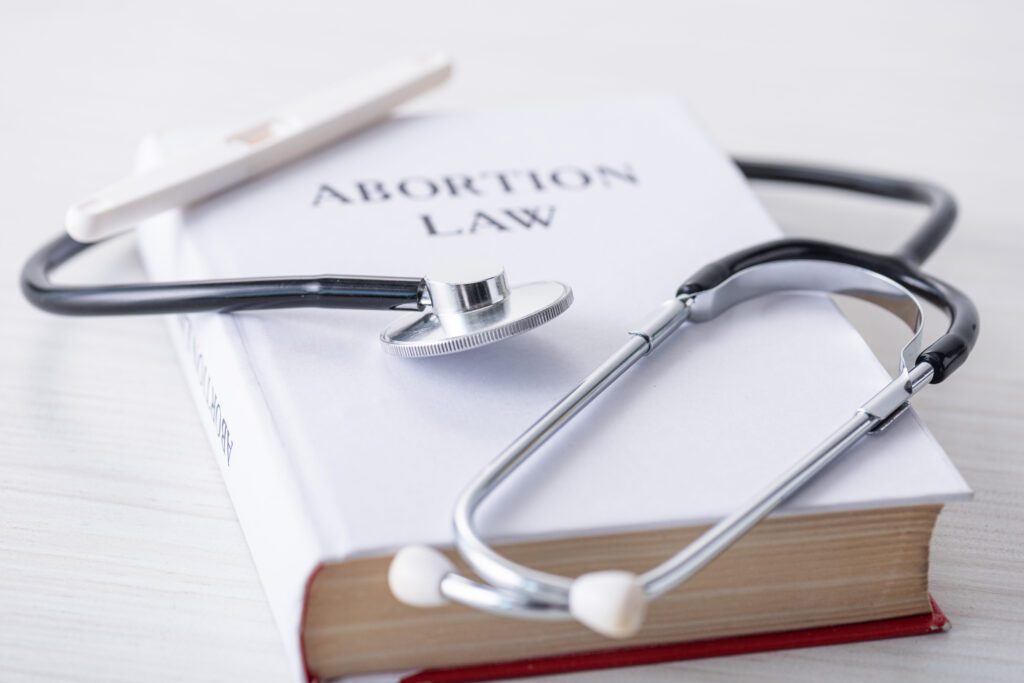
Experts from ACLU Michigan and MOASH discuss what comes next for abortion access following Supreme Court, recent statewide court decisions
Sean Corp, Content Strategist
As several lawsuits attempt to challenge or codify abortion access in Michigan and other states, the University of Michigan has created the online “Roe v. Wade Teach-Out” to help people understand the history of abortion rights, legal challenges and what comes next after the Supreme Court ruled there was no constitutional right to an abortion. Part of that Teach-Out, a live online Q&A to be live-streamed on YouTube from 3-4 p.m. on Aug. 18 will feature experts from the American Civil Liberties Union of Michigan and the Michigan Organization on Adolescent Sexual Health.
The Teach-Out, available on Coursera, features experts from the Law School, Michigan Medicine and LSA discussing the history of reproductive rights in the United States and the ramifications of the Supreme Court and state rulings from a legal, social, medical and political perspective.
The panel will discuss the importance of reproductive freedoms, impacts of abortion restrictions on communities, and approaches to advocacy.
Participants in the Q&A can register for the event to view the panel and submit questions to the experts. Answers will come from Bonsitu Kitaba, deputy legal director at ACLU of Michigan and an expert featured in the Teach-Out, and Shakti Rambarran, advocacy director at MOASH.
Questions and concerns from people in Michigan and throughout the U.S. have been plentiful since the Supreme Court’s June ruling in Dobbs v. Jackson Women’s Health Organization, which held that the U.S. Constitution does not confer a right to abortion. The court’s decision overruled both Roe v. Wade and Planned Parenthood v. Casey.
The situation became even murkier this week when a series of court rulings called into question where abortion access stood in Michigan. The university is closely monitoring the legal proceedings related to abortion care in the state. Currently, Michigan Medicine will continue to include abortion care in the reproductive services it provides to patients.
The free online “The Roe v. Wade Teach-Out” is designed to help foster thoughtful discourse on the issue of abortion, its history of litigation and what could be expected in the aftermath of the Supreme Court ruling.
Besides Kitaba, teach-out experts include Barb Mcquade, professor from practice at the Law School; Dee Fenner, co-chair of the U-M task force on abortion access and chair of the Department of Obstetrics and Gynecology at Michigan Medicine; Lisa Harris, co-chair of the task force and professor of obstetrics and gynecology.
The 1931 Abortion Restriction Law in Michigan
In May, a Michigan judge issued a preliminary injunction against Michigan’s 1931 abortion law that would ban most abortions in the state. On Monday, the Michigan Court of Appeals ruled that the May ruling does not apply to county prosecutors. Later Monday, an Oakland County judge issued a temporary restraining order blocking county prosecutors from enforcing the 1931 abortion ban.
The Court of Appeals ruling could have massive implications for abortion access in Michigan. Chaos and confusion was an inevitable result following the Supreme Court decision, and we will see much more going forward, says Barb Mcquade, professor from practice at University of Michigan Law School.
Mcquade discusses the legal implications of the Supreme Court decision in the Roe v. Wade Teach-Out, an online learning event launched in early July featuring experts discussing abortion, its history of litigation and what could be expected in the aftermath of the Supreme Court ruling in Michigan and around the country.
“I think we’re going to see a lot of chaos between now and the time it’s settled, which could very likely last a decade or more,” Mcquade says.
With so much up in the air from a legal perspective, the Teach-Out will also feature a live Q&A discussion.
While the Teach-Out is designed for a national audience to learn about abortion access and the history of litigation broadly, there are several components that touch on the realities of abortion rights in Michigan, including discussions of the 1931 abortion law and the potential of a Michigan Supreme Court ruling that will decide if that 1931 law violates the Michigan Constitution.
Legal Challenges from Both Sides
Other featured experts in the Teach-Out include Bonsitu Kitaba of the ACLU of Michigan who discusses Michigan-specific issues and what the ACLU is doing in the wake of the Supreme Court Ruling.
“When the Dobbs decision came down from the U.S. Supreme Court, we faced a unique threat,” says Kitaba. “When the U.S. Supreme Court overturned Roe v. Wade that [1931] law could have come back into effect right away. And that law itself is biased, it’s racist, it’s sexist. It was designed at a time when, nationally, legislators tried to control the reproductive life and health of women.”
Kitaba has a series of videos in the Teach-Out, recorded in June, detailing the 1931 law and the temporary injunction that was in effect until Monday’s ruling. “The 1931 law itself is very broad and expansive, and charges a felony to anyone who does anything to procure an abortion of another individual. So that means the doctors and nurses who prescribe medication or who perform abortion procedures could face 5 years in prison for doing just that,” Kitaba says in the Teach-Out.
Kitaba notes the chance of challenges to the injunction as happened Monday. “If that happens that means clinics will be forced to close their doors and that access to abortion would be nearly eliminated in our state.”
There is also the matter of prosecutorial discretion, which is covered in the Teach-Out by Rich Friedman of the U-M Law School. “Some local prosecutors are just not going to prosecute under that law, and that’s going to be an interesting dogfight of sorts in various states,” Friedman says. “Even within a given state, some prosecutors will enforce the law and some will say that their resources are better directed elsewhere and as a matter of principle they won’t enforce.”
That patchwork approach already appears to be emerging in Michigan with Michigan Attorney General Dana Nessel writing “The Michigan Court of Appeals has just ruled that MI’s 83 county prosecutors can now begin enforcing the abortion ban. But note that the Dem prosecuting attorneys have committed to refuse to enforce the ban, and the injunction still applies to my department.”


